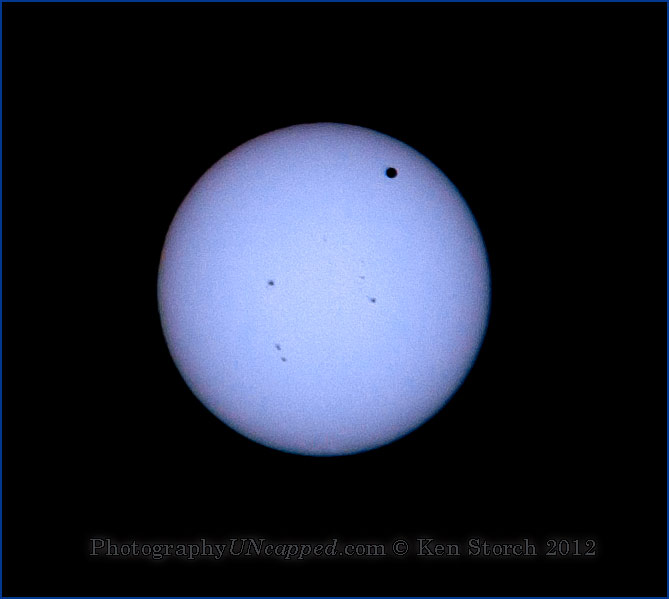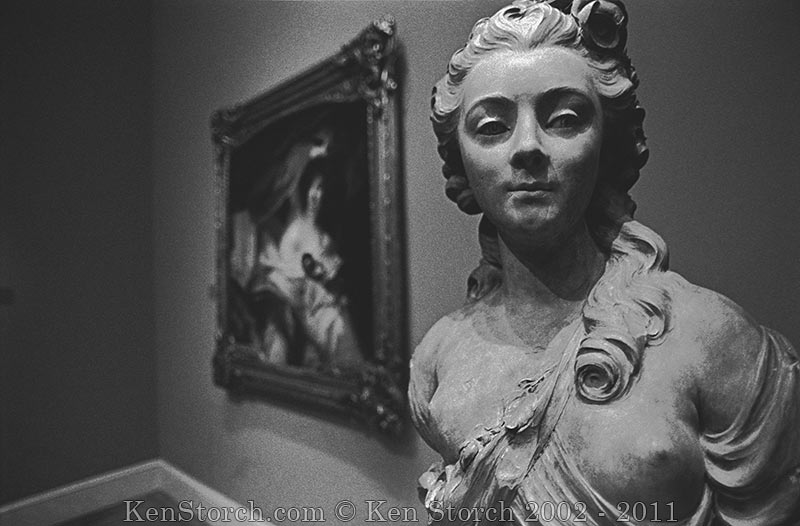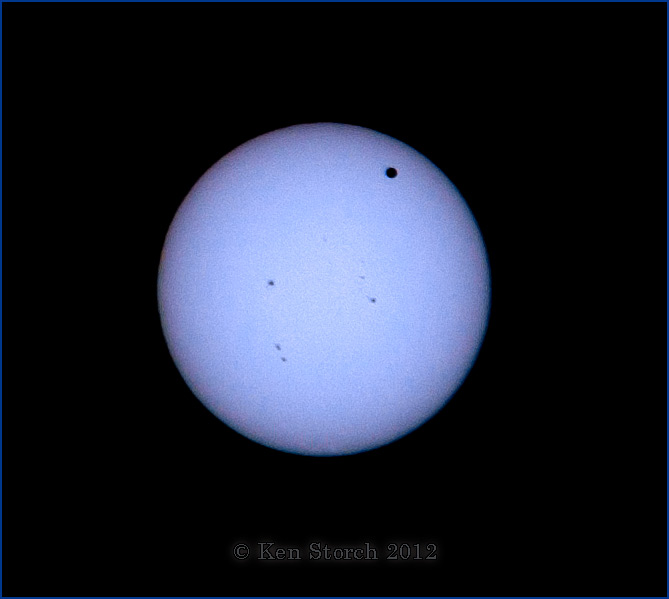
In order to photograph the transit of Venus across the surface of the sun, I created a stack of filters to reduce the brightness of the sun to ‘shootable’ levels.
I used some filters I had around, many of which were in different sizes, but all equal to, or larger, than the filter size of the lens I used for the shots.
I used my old-school Nikkor 200mm f4 lens. It was the longest lens I had available for which I had sufficient filtration.
It has a standard Nikon 52mm filter ring, and I have a bunch of 52mm filters, along with a few 55mm’s and a few 58mm filters too.
In order to get the light levels manageable, and shootable, I had to stack many filters, including an 8x Neutral Density, an Infrared R72 filter (which I swiped off of a home-rigged digital IR camera setup), and several linear Polarizers which I rotated to get the sunlight down in brightness.
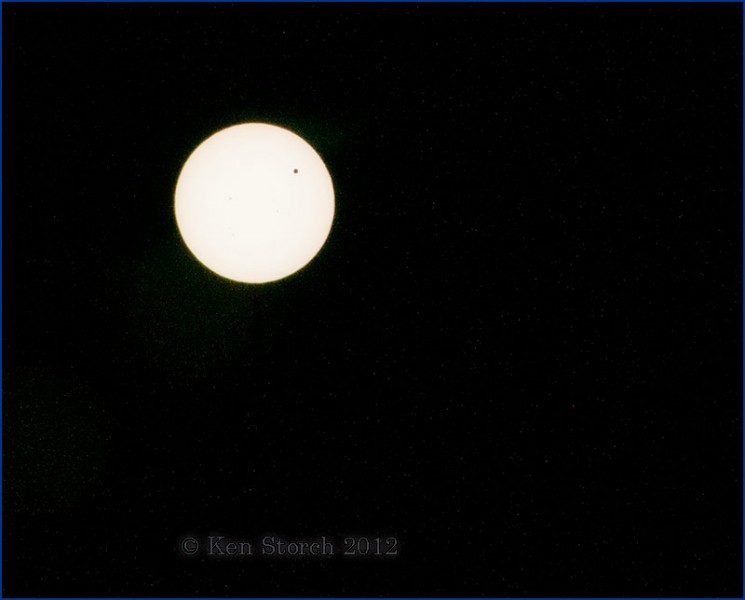
Since all the filters were at or larger than the lens 52mm, no vignetting occurred. At certain angles to the sun, however, there was visible flare reflections from between all the filters.
I had to use the (Nikon D300) camera’s Low ISO settings (roughly equivalent to 100 ISO), with the top shutter speed of 1/8000 (which helped, since it was windy), and optimal apertures for this lens of f4, f5.6, and f8.
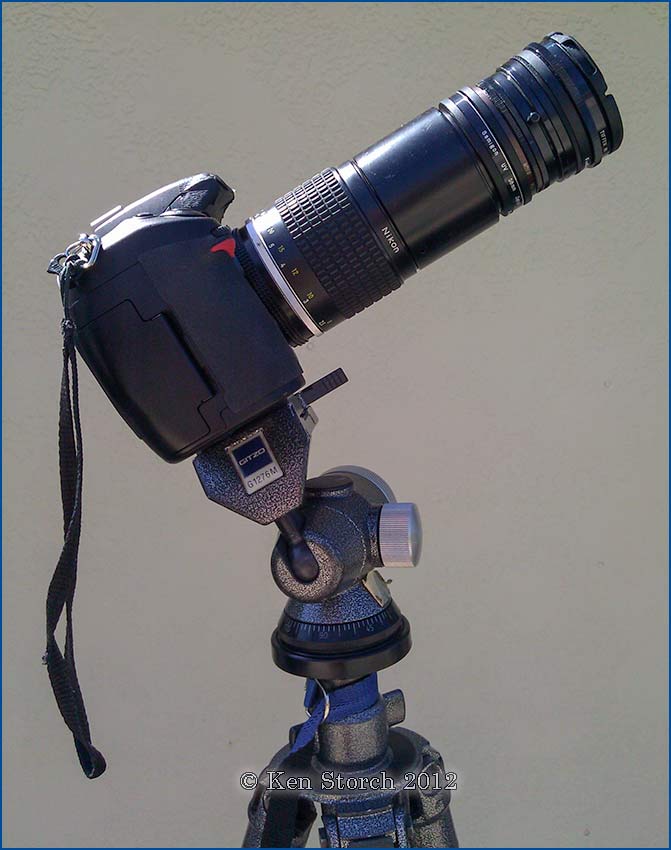
Anyway, it worked as you can see from the above pix. One neat benefit of the dark filtration combined with the infrared filter is that some of the stars behind the sun were actually visible in the photos. These in addition to the sunspots also visible (best seen in the 1st pic in this post).
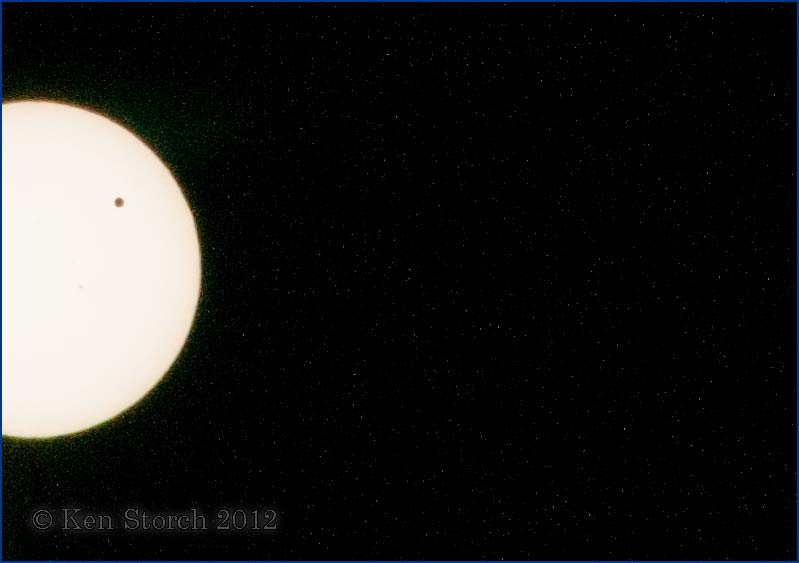
All in all, an unplanned, but usable rig, thrown together on the spur of the moment (one of my specialty areas 😉 ).
Enjoy.
